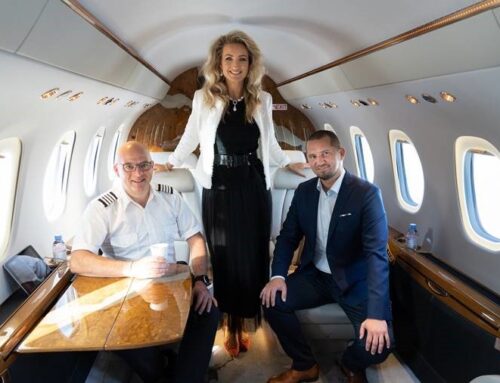One of the important decisions regarding buying or selling aircraft is the selection of an aircraft broker. It is an important relationship that will help you implement your desires while using their experience to navigate the many details and avoid costly pitfalls that occur during an aircraft deal. Remember, the aircraft brokerage business is a service business, and the service you receive is directly related to the information you give your broker for them to work with. A broker’s role is to turn a desire to buy or sell an aircraft into a reality that best suits what the client wants. Open communication about priorities, motivations and structure necessities allows your broker to understand how to fulfil your wishes. Here are a few of the most important items to discuss with your broker at the beginning of your transaction:
1) What is the reason for your transaction? This is a fundamental item to discuss with your broker as this answer changes transaction to transaction. For example in a sale scenario, does this need to be a very visible sale for publicity reasons or will the funds be used for further investment in your business? Do you not use your aircraft anymore or are interested in a different type that holds more people or goes farther? On the other hand, if you are buying an aircraft, maybe you successfully sold your company and purchasing an aircraft has been a lifelong dream, or has your business grown and you now need more range and more cabin space to fit more people? Understanding the fundamental underlying motivation for the purchase or sale will tremendously help your broker structure a marketing campaign and transaction to accomplish your desires and needs.
2) Is there a calendar deadline for when the transaction must close? Often, aircraft transactions must meet time deadlines for tax purposes or accounting reasons. Since the recession hit in 2008, buyers have become more cautious and aircraft transactions are now taking months to complete. Therefore, if you need to exchange title before a certain date for tax reasons, let your broker know upfront. A transaction can be structured to accommodate time crunches or title transfers to meet compliance deadlines, but usually only when this is known in advance. Be up front on this point, so a transaction can be built to suit your time window.
3) Is timing or pricing more important? As a buyer, do you prioritize purchasing an aircraft that meets the majority of your wants and needs even if it isn’t the lowest priced aircraft on the market? Or are you looking for the most attractive price even if it means compromising on some of the things you want? As a seller, are you willing to own your aircraft a little longer and continue paying on your aircraft over a longer time to attract potential buyer at a better price? Or do you want to sell as soon as you are able to get a decent price so you are able to move on to your next project and airplane? We deal with clients who fall into all of these categories. This is something to tell your broker so they can then understand the true priorities of your transaction as opposed to having to act on assumptions of what you want.
4) How do you want to use your aircraft? It is amazing how little the desired use of the aircraft is discussed with the broker prior to a purchase. Will you charter your aircraft or operate it privately? Which registration will you enrol it on? Will you be flying long range frequently or only once or twice per year? Will you often have lots of passengers on board or just you and a couple of people? Is there a particularly challenging runway you plan to use frequently? Do you carry lots of baggage? Do you take many overnight flights and therefore want a divan that pulls out into a bed? Understanding how you plan to use your plane will focus the search to certain aircraft and types that will achieve the purpose you want to complete.
5) Do you have any specific preferences? This is a question of personal taste and style. Keep in mind that most aircraft will not precisely match your own tastes, but there may be some items which are important to you that will focus the search to an aircraft that will suit you better. For example, a client of Colibri’s had a preference for aircraft only with straight aisles. This allowed us to limit our search to aircraft that did not have a dining table installed producing an aircraft purchase they were fully satisfied with. Some other examples of preferences are: the number of seats, if the divans convert to beds, how many lavatories, the galley location, colour of the woodwork, internet and phone connectivity, etc. Talk to your broker about certain configurations and options that you would prefer. Most aircraft will not have everything you want. However, most options can be retrofitted, whereas configuration changes are vastly more expensive.
6) Are Lenders involved? Whether buying or selling, the involvement of a bank adds another party with their own set of interests in the transaction. This is the same whether the bank is loaning money against the aircraft being purchased, or if you are repaying your loan with the proceeds of the sale. Knowing lender involvement at the onset assures all parties liaise with one another for the transaction to accomplish each party’s goal. Most aircraft lenders have lots of experience with this and are usually forthcoming with their own requirements. Knowing in advance what they will accept as collateral or how their repayment procedures work will enable you to structure a transaction they will be happy to accept.
7) Do you require a certain Ownership Structure and/or Tax Advice? How the aircraft is owned, in what sort of entity, and in which jurisdiction has a huge impact on tax implications associated with your transaction. Our recommendation is to get professional advice on how to structure the transaction to minimize your tax burden. This should be done early on, as it will set the outline for the entire legal structure of the transaction. Too often it is left to the last minute creating many complications as eleventh hour changes are made. Tell your broker how your structure needs to be and if you have received advice on this. If not, ask them if they know of any reputable advisers who can review your structures (we interact with tax advisors frequently and can highly recommend a few). Knowing beforehand what the structure needs to be is a great benefit for your broker to build a deal that suits your use and legal requirements for the entities into which the aircraft will be held.




